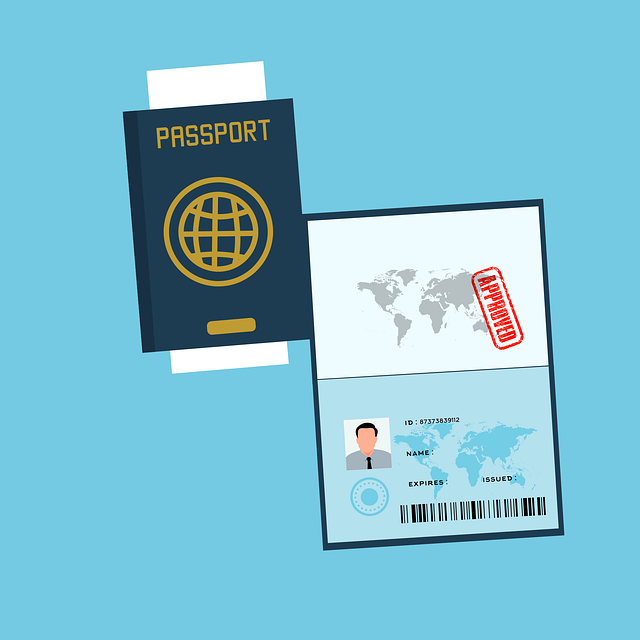Regular self-checks for accuracy are essential to maintain control over digital identities, health records, finances, contact details, and personal documents. By checking search engine and social media profiles, medical records, financial statements, contact info, and digitizing important documents, individuals can ensure online data reflects their current preferences and protect against unauthorized access or identity theft.
In today’s digital age, our personal information is a valuable commodity. Understanding the online data trails you leave is crucial for maintaining privacy and security. This comprehensive guide walks you through essential self-checks for accuracy, including social media profiles, medical records, financial statements, contact information, and digitizing personal documents. By regularly reviewing these aspects, you empower yourself to protect your identity and ensure your digital footprint remains secure.
- Understand Online Data Trails You Leave
- Regularly Check Social Media Profiles
- Review Medical Records for Accuracy
- Monitor Financial Statements and Credit Reports
- Verify Contact Information Across Platforms
- Secure Personal Documents Digitally
Understand Online Data Trails You Leave

In today’s digital era, every action online leaves a data trail, from simple searches to social media interactions and online purchases. It’s crucial to understand that your digital footprint is permanent and can be easily accessed by anyone with the right tools. A self-check for accuracy involves regularly reviewing the information available about you online. Start by searching your name on popular search engines and social media platforms. You’ll be surprised at the amount of personal data, including old posts, photos, and even deleted items, that can still be found and indexed.
This awareness is the first step towards protecting your privacy. By understanding what information is out there, you can take proactive measures to ensure it aligns with your current identity and preferences. Regularly updating your online profiles, removing obsolete content, and controlling access to personal data are essential practices in maintaining a positive digital presence.
Regularly Check Social Media Profiles

Regularly checking your social media profiles is a crucial part of maintaining control over your personal information online. These platforms often serve as digital snapshots of your life, and what’s shared can impact your privacy and security. Take the initiative to self-check for accuracy on a monthly basis. Review your settings to ensure only authorized connections can view your posts and personal details. Look out for any unfamiliar accounts linked to your profile; this could be a sign of unauthorized access or identity theft attempts.
Stay vigilant by keeping an eye on your social media presence. Update your contact information, change passwords periodically, and remain cautious about the content you share. Regular self-checks empower you to quickly address any discrepancies, ensuring that your digital footprint remains secure and aligned with your preferences.
Review Medical Records for Accuracy

Regularly reviewing your medical records for accuracy is an essential part of maintaining a healthy digital footprint. Take the time to self-check for any discrepancies or outdated information, as medical errors can have severe consequences. Your health data should reflect your most recent consultations, diagnoses, and treatments.
By keeping your medical records up-to-date, you ensure that healthcare providers have access to precise and relevant information when needed. This simple step can prevent potential issues during future medical procedures or emergency situations. Stay proactive in managing your digital health profile for better overall well-being.
Monitor Financial Statements and Credit Reports

Regularly monitoring your financial statements and credit reports is a crucial part of maintaining a healthy financial profile. It’s essential to perform a self-check for accuracy to ensure that all the information associated with your accounts, loans, and credit cards is up-to-date and correct. Financial statements provide a comprehensive overview of your income, expenses, and savings, while credit reports detail your borrowing history and credit scores.
By frequently reviewing these documents, you can quickly identify any discrepancies or signs of fraudulent activity. Many online banking platforms offer easy access to financial statements, allowing you to track your transactions and balance in real-time. Credit reporting agencies also provide digital access to your credit report, enabling a convenient self-check for accuracy. This proactive approach empowers individuals to take control of their financial health and make necessary adjustments to protect their assets.
Verify Contact Information Across Platforms

Regularly verify your contact information across all online platforms is a crucial step in maintaining privacy and security. A simple self-check for accuracy can help prevent unwanted communication, ensure important messages are received, and safeguard your digital footprint. Start by reviewing your social media profiles, email accounts, banking details, and any other personal data stored on websites or apps.
Double-check that your name, phone numbers, email addresses, and physical addresses are all up to date. Outdated or incorrect information can lead to missed opportunities or security risks. Many platforms allow you to set preferences for how and when you’re contacted, so take advantage of these settings to further protect your privacy. Regularly updating your personal information is an essential part of online safety.
Secure Personal Documents Digitally

Keep your personal documents secure and up-to-date by digitizing them. Scanning important papers like identification cards, passports, driver’s licenses, and insurance policies creates digital backups that are easily accessible. Regularly self-check for accuracy to ensure all information remains correct and current. This process not only simplifies data management but also enhances security by reducing the risk of physical loss or theft.
Opting for digital storage methods allows you to organize documents efficiently, making it simpler to verify details when needed. Moreover, digitizing personal records enables quick sharing during emergencies or official procedures, ensuring convenience and peace of mind.
